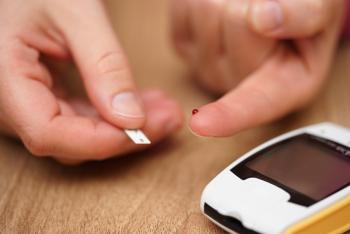The recent outbreak of highly contagious Measles among children in the Philadelphia area highlights...
Read More

Rates for childhood obesity have tripled during the last three decades in the U.S., with about one in three kids being considered overweight or obese. It’s an epidemic that can put children on a path for developing chronic health conditions as an adult. Children who struggle with obesity early in life are more likely to develop conditions like heart disease and Type 2 diabetes.
Determining if your child is obese can be difficult since children grow at different rates. For this reason, your child’s body mass index (BMI) is interpreted differently than it is for adults.
Doctors look at your child’s BMI measurements and compare it to other children of the same age, gender and height to determine what percentile they fall in. An overweight child is one who falls between the 85th and 95th percentile, and an obese child is greater than the 95th percentile.
Childhood obesity can be a result of lifestyle habits tied to food and exercise, or a result of genetic and hormonal factors. The Centers for Disease Control and Prevention recommends the following healthy eating habits for encouraging your children to make better choices:
In addition to eating the right foods and controlling portions, incorporating exercise into a child’s daily routine is important for good health. Children should be getting one hour of physical activity each day. Most of that exercise should be moderate- to vigorous-intensity aerobic activity. When encouraging kids to turn off their devices and get off the couch, remember that they are active in different ways than adults. They may not be motivated to go on a run but might be excited to play a game of tag or kickball.
Childhood obesity is not just about children. It’s important for parents to have an active role in not only encouraging healthy nutrition and exercise habits, but also to lead by example. Participate in physical activities together as a family and make meal time an opportunity to teach your kids about the importance of eating fresh foods.
Talk to your primary care physician if you have concerns about your child’s weight. They’ll be able to show you where your child lands on the growth charts to determine if they’re in an unhealthy range. Schedule an appointment with your primary care doctor by calling 1-800-INSPIRA or find the nearest Inspira primary care office.

The recent outbreak of highly contagious Measles among children in the Philadelphia area highlights...
Read More
Discover how high blood sugar impacts your body, from dental complications to kidney damage, and...
Read More
Ready to tackle your health goals in the new year? From fitness programs to mental wellness...
Read More
The material set forth in this site in no way seeks to diagnose or treat illness or to serve as a substitute for professional medical care. Please speak with your health care provider if you have a health concern or if you are considering adopting any exercise program or dietary guidelines. For permission to reprint any portion of this website or to be removed from a notification list, please contact us at (856) 537-6772